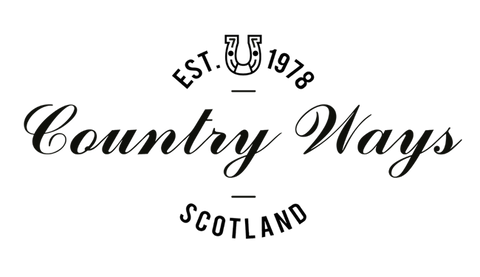An interview with Daniel Watson, by Lynne Clark. Images by KPhotography.
When I arrive for the Country Ways sponsored Daniel Watson demo at Tillyoch Equestrian Centre, I find the man himself sat casually at a picnic table, taking a well earned break before beginning the evening demo (and before I interrupt him with my questions! ) I am introduced to him and the first thing he tells me is how much he has enjoyed his day’s teaching and how friendly we all are up here in Scotland It’s his first time in Aberdeen and he has thoroughly enjoyed it. Not least because of the diversity of horses and riders he has taught all day.
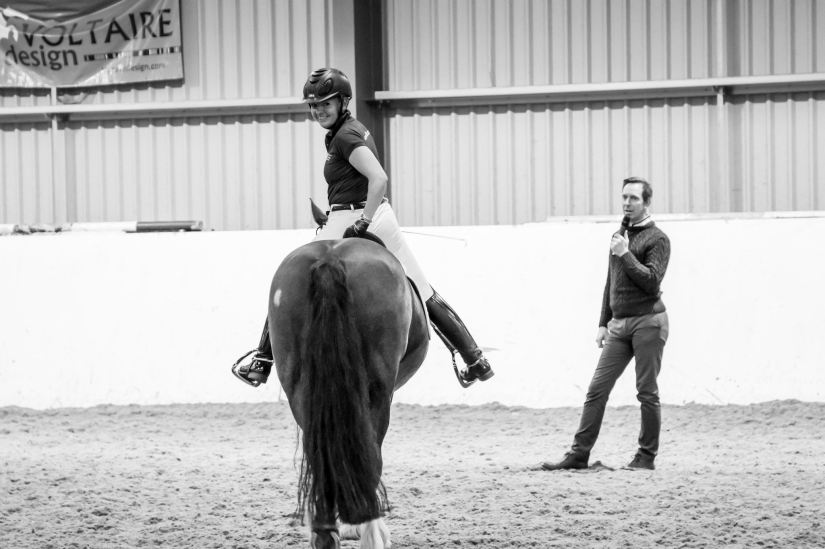
He tells me how great it is to see horses of all shapes and sizes, as well as riders working to better themselves and committed to developing their partnerships. This is a man who values hard work after all. Daniel is a grafter. Growing up riding the local riding school ponies, nothing has been handed to him on a plate. Perhaps because of this, he is able to appreciate the real inherent value of each and every horse. Yes they may not all be future Grand Prix dressage stars, but they all have something to teach us none the less. With consistent training, the best in any horse (and rider) can be brought out. This attitude manifests itself in his teaching too.
During the demo he takes a step back and watches each of the riders warm up before asking their thoughts on things they are happy with and other things they would like to work on. This isn’t just so he has time to make his own assessment, but also to create a space where he can allow the rider time to make their own appraisal. He is interested in hearing their voices and creating an open dialogue throughout.
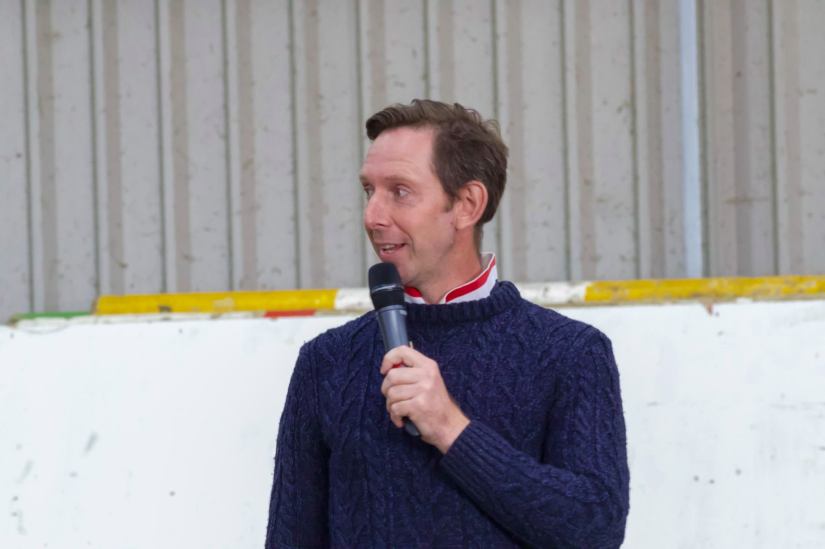
During our chat before the demo, he speaks at length about how much he values the journey with both horses and riders. So it comes as no surprise to me that this is his approach to teaching as well. Acknowledging and appreciating each individual partnership and the stage of their journey, while acting as a facilitator to improve it. And he is indeed a very effective facilitator. Expertly coaching each of the fantastic combinations through a diverse range of exercises concurrent with the level which they are working at, he makes a significant difference to both horse and rider. It’s telling that they all leave with big smiles on their faces….
Q: What’s the key to being successful at dressage?
A: “Dressage is the long game. It’s not a quick fix and you aren’t in it for any other reason than the journey with that horse. If I go to a competition and I’m on a particular horse, I don’t think well I’m going there to win, I think I’m going there to better my feeling with that particular horse and if you win it’s a bonus. At the end of the day though, it is what it is, and as long as you’re happy with what you’ve done when you halt at X and when you come down the centre line at the end, that’s what you need to be feeling”.
Q: What’s your best piece of advice for any aspiring dressage riders?
A: “Be prepared to graft, hard”.
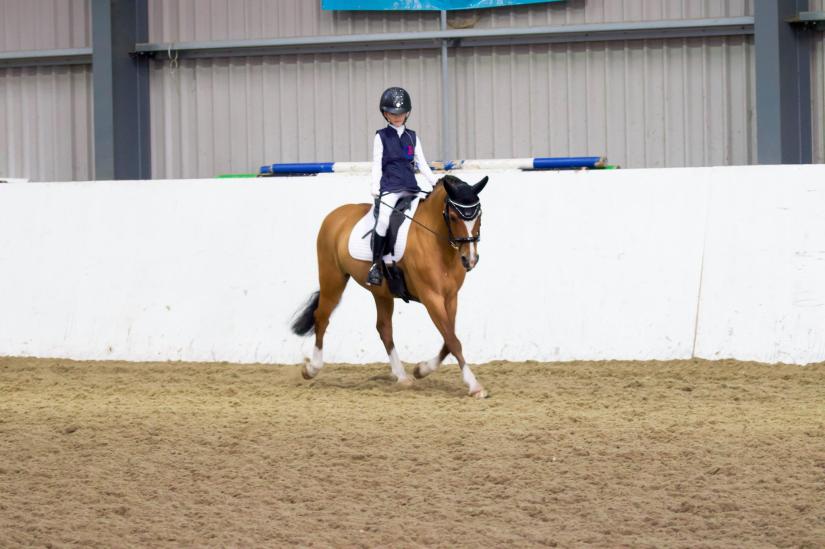
Q: What qualities do you look for in a dressage horse?
A: “A trainable horse with 3 good paces. They don’t have to be flamboyant paces; trainability is more important I think. If you’re prepared to be patient, I think patience is everything; you sit and you wait and you train and you keep training and you just take every day as it comes, with every horse”.
(During the demo, Daniel reiterates this point during his assessment of Carmen Gammie’s fantastic pony ‘Bubbles’, citing him as a classic example of the transformative power of correct training…
“he’s not a flamboyant German riding pony, he is what he is, but with training, he has proven that it is completely within his capacity to represent GB in teams. For me, that is what the whole sport is about, because at the end of the day, if you train them correctly, the sky is your limit”).
Daniel also stresses throughout that one of the most important tools in your training arsenal are gears…
“Gears are probably one of the most important things that you can use when teaching any horse. Teach a horse different gears within their rhythm and within their tempo, and you can pretty much teach them anything”.

Q: What would be your advice for riding a great dressage test?
A: “Concentration. Composure. Never worry about what anyone else thinks. You’re doing it for you, whether you’ve got 1 person stood watching or whether you’ve got 10,000 stood watching. It’s neither here nor there at the end of the day, it’s you in your own world with your horse”.
(At this point I tell Daniel what great advice that is, and how with riding, and riding a dressage test in particular, it can often feel like you are in a fish bowl, the eyes of everyone else watching if you will sink or swim. He replies that it doesn’t matter because it’s all about the journey, the partnership, and being in that moment with your horse. Excellent advice from a top rider who can still relate to competition nerves and the anxiety we often feel as riders).
Q: Where do you look for your horses?
A: “I don’t buy many, I breed them myself. I get what I’m given. I suppose the whole of my career, I’ve never had the funds to go out and buy top horses, so I’ve had people bring horses to me. A lot of them have been mediocre horses, they’ve not been superstars, but you make them into what they are. When you train horses, you have to think they are what they are, don’t force them into something they’re not. But then you train them to enhance the suppleness and if you enhance the suppleness, you enhance the pace and then they start to grow and gain confidence and who knows where that horse is going to go in it’s career. That’s how I tackle it. I have some of the most lovely horses, but I also have some quite boring ones. Every horse is different and you have to take them for what they are. Take their positives and build on them. Everything is about the training. You need to listen to every horse and take on board everything you learn from them each time you sit on one”.
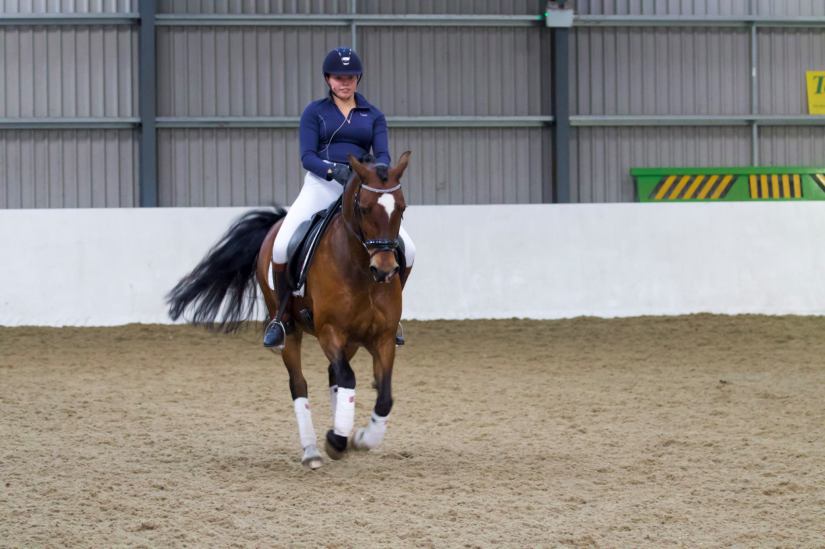
Q: You have achieved so much in your career, (Daniel has been a member of numerous Team GB Dressage squads, has been on winning Nations Cup teams, and has been shortlisted for WEG), do you have one particular highlight or a proudest moment you could choose?
A: “I had a really tricky horse years ago, which was the first horse that actually went seriously big time internationally with me. He’d come from a dealers yard and I didn’t know this, but when we found him, he had issues. When we brought him back to England, I took him to a few shows and he was just bonkers, it took me a long time to deal with the problems. And anyway people would come up to me and say ‘oh so you’ve got him now’ and I would say ‘well how do you know?’ Oh well it bronced this person off and it did this and it did that… and you’re thinking oh god what have I bought? But the more I worked with him, there was something in that horse that I just clicked with. The more I worked with him, the better he got and that horse took me to being on the Nations Cup team in many shows and being on winning teams with Carl and Charlotte and Gareth and all the others, and that for me was a major highlight in my career. I suppose because he put me in a place where I never really thought I was going to be at. And he put me in the spotlight. But I suppose in a way it was just a bit of a fluke because you just don’t know what any horse is going to come up with. You just take them for what they are make them softer and make them more supple and see what they can play with and they just grow on you. And that’s what he did for me.
“And he’s not the first. I’ve got tons of horses that have different things in different elements, but he’s always one that stands out in my head as being my horse of a lifetime. And now he’s at home with me in the field retired happy as Larry. He’ll always have a place in my heart; always. I’ve got a mare that I bred out of a broodmare who I’ve had since she was 3 years old, and she was the very first foal from that broodmare. She’s 11 now and just started going Grand Prix 6 months ago. For me to breed that horse and do everything with her right through from the start, she’ll always be in my heart and she’ll never ever leave my yard. She has a home with me for life”.
Q:What’s the best piece of advice you have ever been given in your career?
A: “Oh god… to graft my arse off! Because you don’t get anything given to you on a plate. If you really want it, and I don’t necessarily mean success, because I don’t think I ever really wanted that, I just wanted to learn my craft and my job, but in this game you have to put the work in. If you don’t put the work in, you don’t learn. So many kids nowadays, they’re not like what we were like in my day, they don’t graft; they get on, they get off, and they leave their parents to do everything else. What’s that going to give you in life? Times have really changed and you don’t see the same hunger as you did 10-20 years ago”.
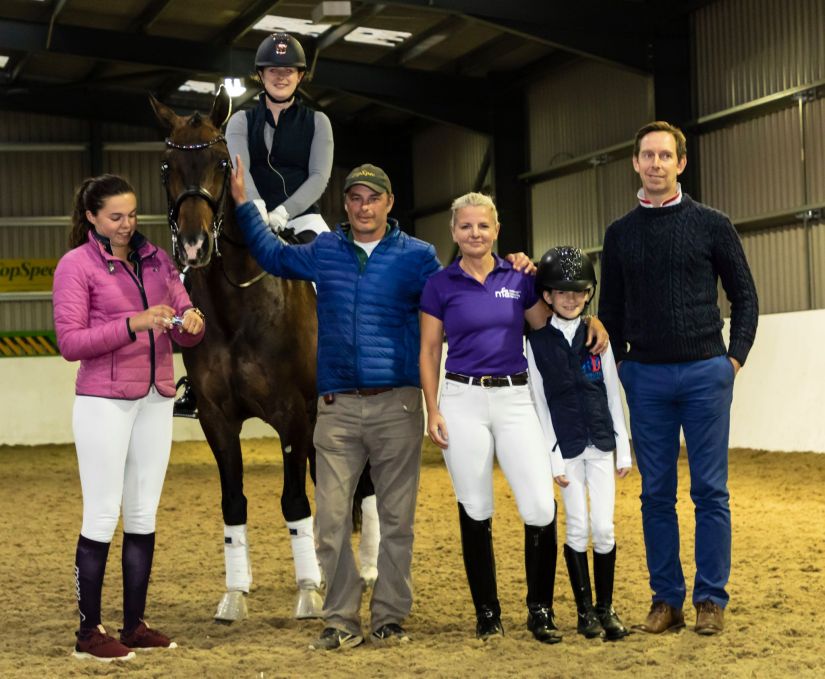
What is your approach to teaching? Especially combinations who you are just seeing for the first time?
“One thing that you need to remember with every horse and rider is that there is no one who knows that horse better than the rider on it’s back. When you first work with someone in particular, it’s always good to actually just sit back and watch a little bit and see how they tackle different scenarios, how they warm up and then you start to get a feel for the positives of that particular way of going, or the slight weaknesses as to what you can improve on in a session. When you are teaching someone, you have to be able to determine what the rider can cope with, depending on how the horse is”.
“It’s always so great when riders want to learn more and do more things with their horses and teach them the more advanced stuff, because at the end of the day, they are setting a president in their own learning ability and in their own riding career to be able to then move onto many other horses if they wish and teach them the right way up the levels. If you can do it on one, you can do it on many”.
LC
This event was organised by David Lawson Equestrian Events and Sponsored by Country Ways and Ardene House Equine Vets
For more information about…
Daniel Watson Dressage at Bislingon Priory Equestrian
http://bilsingtonprioryequestrian.co.uk/
Book a lesson with Daniel on 28th Sept 2019 David Lawson Equestrian Events
http://www.facebook.com/events/2315651828762917/
Country Ways
http://www.countryways.com
Ardene House Equine Vets
http://www.ardenehouse.co.uk/equine
KPhotography
http://www.facebook.com/speedymerc/
